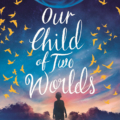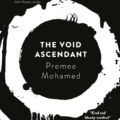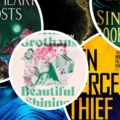The world of epic fantasy literature has long been dominated by Western tales of knights, dragons, and enchanted lands of England-inspired worlds. As a fantasy junkie, I couldn’t help but notice the absence of Indian narratives in this genre. With my country’s rich cultural heritage and captivating mythology, I wondered why our stories were not celebrated in the same way as Greek mythology was.
In a similar vein, why did India, the cradle of the epic fantasy genre, enjoy no local representation on the fantasy bookshelves? Why hadn’t the world heard of the ancient Indian songs that inspired iconic concepts of Matrix from The Matrix or the entire magic system of The Wheel of Time? Needless to say, it wasn’t my favourite irony. I wonder what my ancestors would think, gazing upon our bookshelves?
These are the same ancestors who dreamt of cross-realm travel, nuclear projectiles (Astras) magical races like Nagas, Vanaras, Vampires and Centaurs; who told tales of elemental magic, advanced consciousness, and even expounded on interstellar concepts of time dilation. The same ancestors who etched these tales onto palm leaves before Europe even had paper – the tales we all grew up listening to from our grandmothers.
Alas, the aftermath of colonialism, which branded us as heathens, stripped away our pride in our folklore magic and relegated it to the sidelines. The conclusion was long foregone: Fantasy was dead in India.
Determined to resurrect it, I embarked on a Frodo-dian quest to open the gates of India’s Erebor: Its Hidden Lore. Perhaps the idea of Sons of Darkness was born in the womb of this grumble: the idea to play Thanos and reimagine a mythological poem from Ancient India. To reimagine it not as a backwater alley caged in the stereotype of snake charmers and savages, but as a vibrant civilization whose underbelly seethed with mayhem, majesty and magic. Whose world was filled with deliciously dark and desi characters: whether it is a cross-dressing pirate-princess with a love for knives and a hate for conscience, a master swordswoman commanding an army of girls discarded for fear of dowry, or an assassin’s apprentice learning murder using arcane arts of yoga and mandalas.
Four years later, as I proudly proclaim the marketing tagline – ‘the first Indian epic-grimdark-fantasy author’ – I am acutely aware of the significance, and of the long-overdue nature, of this accomplishment, and can only hope that I kick open the doors for other Indian authors who wish to write wonderful fantasy tomes. The journey to getting here, however, hasn’t been an easy one.
In Sons of Darkness, Karna – a low-born warrior rebelling against the caste system – enters into an argument about equality with Lord Krishna. Lord Krishna responds that ‘Equality is just a myth’, and demonstrates how, even amidst the lower castes of society, there are some who are far richer, far more fortunate than even the nobles of the highest castes. In doing so he decrees that caste is not the only dividing line across society. Privilege is also responsible for its fault lines.
 When I wrote this scene, I did not realise how I would resonate with it in the very near future. I suppose in this I find common cause with all the other fantasy authors from Africa and Asia, authors of colour like me, who did not have agents, who did not know what NetGalley was, and who, in the pursuit of representing their region and culture, found themselves thrown to the back of the BIPOC queue, behind US and UK citizens of Asian and African origin. They, like I did, stared up to find (much like Karna) the thorny ladder of privilege.
When I wrote this scene, I did not realise how I would resonate with it in the very near future. I suppose in this I find common cause with all the other fantasy authors from Africa and Asia, authors of colour like me, who did not have agents, who did not know what NetGalley was, and who, in the pursuit of representing their region and culture, found themselves thrown to the back of the BIPOC queue, behind US and UK citizens of Asian and African origin. They, like I did, stared up to find (much like Karna) the thorny ladder of privilege.
A quick glance at Goodreads statistics reveals a stark reality (apologies in advance for the info dump). In the 2022 BIPOC Author Year, comprising fifteen books, fourteen belong to diaspora authors from the US and one to a diaspora author from the UK. There is not a single book on that list by a mainland author. Even on the BIPOC Fantasy Shelf, of the first fifteen books’ authors, eleven are from the US, three are from the UK, and one is from Australia. If we narrow the lens to Goodreads’ 2022 Book Releases by Asian Authors, thirteen out of fifteen are written by Asians who have never stayed in Asia.
These statistics highlight the deep-seated ignorance – or discrimination – faced by mainland authors in finding their readers, despite efforts by the world to give them a platform. Limited access to platforms like ACX for audiobook production[1]; a constrained market for epic-length fantasy novels (in India); a lack of promotional tools like BookTok[2] and fantasy-specific review magazines[3]; the absence of fantasy conventions; and absence of hardback editions of SFF books in the country trap our voices behind a glass cage.
To bring about a change, we must acknowledge the importance of diverse experiences and perspectives. If a flock of masons design a castle and all of them are able-bodied, they’re simply going to design a castle that accounts for the way they move through the world. Similarly, if significant experiences and perspectives are missing from the table, they’re not going to be included. It’s not an intentional exclusion, but it will result in the exclusion of people who move differently.
You have to have multiple perspectives at those tables, and you can’t just take the additive approach, like, “Oh, well, we included some more diversity by signing an author who is an American author of Indian origin from Texas.” It is not enough to add a token diversity by signing authors from developed countries of diverse origins. We need representation from mainland authors, as well as diaspora authors, to draw a fantasy landscape rich in a spectrum of colours instead of just red, blue and white.
I can only hope the success (fingers crossed) of Sons of Darkness will lead us to a brave new world and enable us to find brilliant voices from countries that might not have a robust publishing infrastructure for the SFF genre. I hold nothing but love, respect, and admiration for my friends who are diaspora authors, and understand the struggles they face in getting published. We should support them with all our heart, but I do believe clubbing diaspora authors and mainland authors together without distinction may (unintentionally) be unfair.
Perhaps Syria’s first cozy fantasy writer or Rwanda’s first zombie apocalypse novelist is just waiting to be discovered. Discovered by visionary folks like my publisher, Head of Zeus, who are truly committed to enriching the SFF genre by creating a more inclusive world of literature, not by just encouraging diversity in fictional characters but also in fiction authors.
[1] ACX does not permit authors/publishing houses which are not based in US, UK, Canada and Ireland.
[2] TikTok is banned in India, and as such a very crucial tool for helping the book to reach its readers is unavailable to a fantasy author from India.
[3] The US and UK have a plethora of review magazines: Publishers Weekly, Library Journal, Booklist and many others dedicated to review of fantasy books. Many of these journals do not accept books for review if they aren’t published by a US or UK publisher.
Gourav Mohanty’s Sons Of Darkness is out now. Find more book news, reviews and author blogs at SciFiNow



